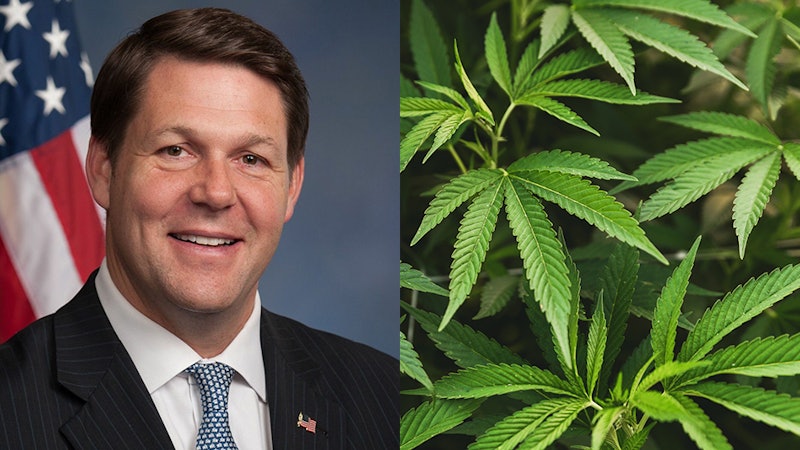Forcing state-licensed cannabis businesses to continue paying punitive taxes on their ordinary business expenses, even should cannabis be federally rescheduled, is now a bicameral effort in the U.S. Congress.
Congressman Jodey Arrington, R-Texas, who chairs the House Budget Committee, and six of his fellow representatives in the U.S. House introduced legislation, H.R. 1447, on Feb. 21. The bill aims to amend the Internal Revenue Code (IRC) of 1986 to maintain the prohibition on any deduction or credit associated with a trade or businesses involved in “trafficking” cannabis.
Under Section 280E of the IRC, businesses involved in Schedule I or II drugs under the Controlled Substances Act are unable to deduct their ordinary business expenses—such as payroll, rent and utilities—from their taxable incomes.
The hope for many U.S. cannabis businesses, the largest of which have the burden of paying roughly $100 million a year in taxes to a federal government that doesn’t recognize them as legitimate, is that the Department of Justice’s (DOJ) current proposal to reclassify cannabis as a Schedule III substance would provide them with 280E tax relief to operate more sustainably.
However, Arrington and six of his colleagues in the upper chamber are now hoping to prevent that from happening. The legislation is cosponsored by Reps. Chuck Edwards, R-N.C.; Gregory Murphy, R-N.C.; Vern Buchanan, R-Fla.; Blake Moore, R-Utah; Gary Palmer, R-Ala.; and Pete Sessions, R-Texas.
Although the DOJ’s Schedule III proposal remains sidelined by an interlocutory appeal, these lawmakers are trying to restrict the proposal’s impact should an administrative law judge hearing resume with a favorable outcome for cannabis businesses.
Although the text of H.R. 1447 wasn’t available as of Feb. 24—and no related bills were listed—Republican Sens. James Lankford, R-Okla., and Pete Ricketts, R-Neb., introduced legislation with a nearly identical title earlier this month.
“Marijuana doesn’t make our families stronger, our streets safer, or our workplaces more productive,” Lankford said in a Feb. 7 press release. “Businesses who sell federally illegal drugs—including marijuana businesses—shouldn’t get federal tax breaks. This bill clarifies federal tax law to make sure a federally illegal product does not have a federally legal tax deduction.”
At the time, Kevin Sabet, the CEO and president of the prohibitionist group Smart Approaches for Marijuana (SAM), took credit for the foundation of the legislation, hailing the bill on social media as a mechanism to ensure cannabis businesses continue to pay $2.3 billion annually in taxes that they otherwise wouldn’t be obligated to pay under the designation of a traditional American business.
The Senate’s version of the bill is titled the “No Deductions for Marijuana Business Act.”
On Feb. 24, SAM drew attention to a Washington Post article, suggesting that Arrington’s bill serves as companion legislation for the Senate’s version.
“Arrington introduced a bill late last week—when the House wasn’t even convened—to prohibit companies involved in the cultivation or sale of marijuana from claiming business-expensing tax deductions,” The Washington Post reported.
Editor’s note: Cannabis Business Times reached out to Arrington’s office for comment and a copy of the House version of the bill.
The bicameral effort to make Section 280E a more permanent hindrance to cannabis businesses comes at a time when just 27% of U.S. cannabis businesses are profitable, according to a 2024 Whitney Economics report.
H.R. 1447 was referred to the House Committee on Ways and Means.
H/T: www.cannabisbusinesstimes.com



